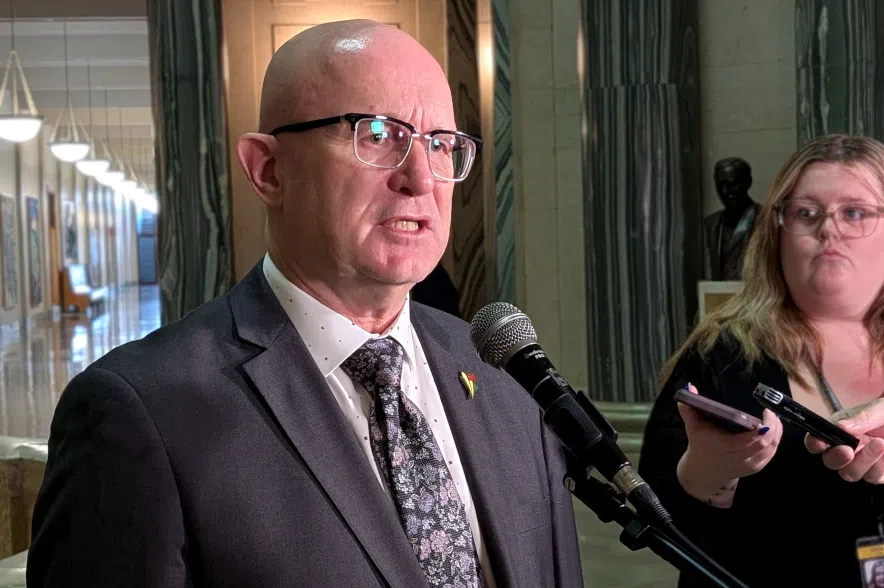In just over a week, Premier Scott Moe will head out on a trade trip to China, trying to clear the way for the Canadian and Chinese federal governments to work out a trade deal.
China has slapped tariffs and duties on Canadian canola, seriously affecting farmers in Saskatchewan – with tariffs on peas and pork as well.
Read More:
- Above-average temperatures, dry conditions welcome as harvest approaches
- NDP repeats calls for action committee on drought relief
- Sask. government appeals to feds after farm equipment hit by tariffs
Moe has been calling for the Canadian government to engage and end the tariffs, and last week announced he would be going on a trade mission. The premier and his government have also reached out to federal ministers to ask them to join the trip’s contingent.
Saskatchewan Trade Minister Warren Kaeding was on the Evan Bray Show on Thursday to share more details about the trip and how the province is working to tackle trade issues.
Listen to the full interview with Warren Kaeding:
Kaeding said he’s cautiously optimistic that the federal government understands the seriousness of the problem after meetings with canola producers and the prime minister’s parliamentary secretary last week.
“This is a multi-billion dollar market. It contributes significantly to Canada’s GDP, and we have a lot to lose here if we lose a major market like China,” said Kaeding.
As of Thursday morning, there was still no word on whether anyone from the federal government will join the trip.
Kaeding repeated what the premier has said, indicating that Scott Moe is not the one who’s going to make a deal and end the trade issue.
“What we can certainly do is make sure that we’re in front of the right people that can understand the seriousness of the issue and how it’s affecting both sides,” said Kaeding.
“Their businesses there that use canola, crush canola, put it into the edible oil industry – they use meal and use it in the commercial fish operations.”
Kaeding said the premier will be in front of agriculture and trade ministry officials in China to talk about where they’re at and what the issues are.
The minister said he also wanted to let pulse, pea and pork producers in Saskatchewan know that they’re not being overlooked, and their issues will also be included in the discussions.
Kaeding revealed new data, showing that provincial exports haven’t dropped as low as people might have expected, given the Chinese and U.S. tariffs.
He said the government analyzed exports between January and June of 2024, and compared them to exports for the same time this year. Kaeding said exports to the U.S. and China dropped by double-digits, but other key sectors they’re marketing to have more than made up for that.
Kaeding said overall exports have only dropped about three per cent in total dollar value – from $22.3 billion in 2024, to $21.6 billion in 2025.
He said the smaller decrease is a result of the work that’s been happening at the province’s nine international trade offices.
Kaeding was asked about whether the work of the trade offices could be quantified and reported on as the Opposition NDP and provincial auditor have called for, but the minister said it’s difficult to put a true measure on the success of each office, because they are all unique.
“I would need to have that conversation with the auditor to see what she’s expecting, what she’s thinking that she needs to see in that report,” said Kaeding.
“I think there’s certainly outcomes and expectations that we have of our various managing directors in these trade offices, so I need to have a better understanding exactly what she (the auditor) wants to see as a reporting mechanism.”
The auditor’s report, in which she made the recommendations about the trade offices, was released on June 3.
Premier Scott Moe is expected to leave for the China trade mission on Sept. 6. Kaeding will be on his own trade mission to South Korea at the same time, and the two delegations will meet in Japan for a few days of meetings afterwards.











